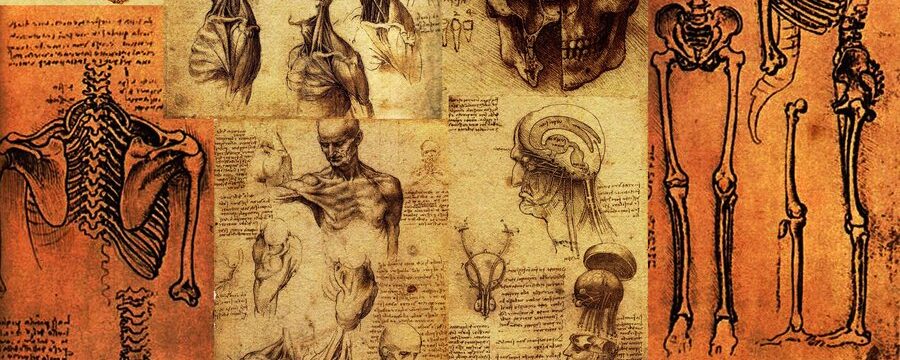Identifying Data:
Full Name: YF
Address: Queens, NY
Date of Birth: xx/xx/1993
Date & Time: 11/21/2022
Source of Information: Self
Chief Complaint: “I don’t feel safe.”
History of Present Illness:
Patient is a 29-year-old Hispanic female, single, employed, lives alone, with no past psychiatric history, was brought to CPEP after self-activation of EMS for feeling scared and wanted a place to feel safe. Patient reports she had gone to clubbing the weekend before and she was “injected with molly” by a man she met in the club. Patient states she returned to his apartment where she “went into a deep sleep” and woke up to find herself sexually abused. Patient reports she doesn’t feel safe at home, states her aunt “was trying to attack her with a knife.” During evaluation, patient is alert, irritable, appears sad, anxious, with poor insight and judgement. Patient is paranoid and preoccupied with discharge, states “I cannot stay here. I don’t feel safe here. I want to be discharged.” Patient denies auditory, visual hallucinations, or suicidal, homicidal ideations. Denies illicit drug use. Admits to drinking alcohol only in social setting.
Patient’s aunt was contacted for collateral and states that it has been a sudden change in patient’s behavior. Patient started to hallucinate at home, starts to get aggressive, violent and the family is unable to redirect her. Family has been staying with her overnight to help her because she lives alone, however she starts to get paranoid towards family and will try to attack them. Patient has been acting like this for 1 week since going out to the clubs. Aunt states patient has not been using any substances/alcohol since then.
Of note, patient presented to Woodhull Hospital with similar presentations 3 days ago. Patient was evaluated and a rape kit was not done as the incident happened over 72 hours ago. Patient was discharged with Emtricitabine-Tenofovir df (Truvada), and Raltegravir Potassium (Isentress).
Past Psychiatric History:
Denied
Past Medical History:
Denied
Past Surgical History:
Denied
Medication:
- Emtricitabine-Tenofovir df (Truvada), 200-300 mg, PO daily
- Raltegravir Potassium (Isentress) 400 mg, PO, twice daily
Allergies:
NKDA
Denied food or environmental allergy
Family History:
Mother: alive and well
Sister: older, alive and well
Sister: younger, alive and well
Denies family history of psychiatric disorders
Social History:
Employment: employed as insurance representative
Education: completed College
Habits: Denied alcohol, tobacco and illicit drug use.
Travel: Denied recent traveling
Marital History: Single with no children
Sexual History: Sexually active
Home: live alone
Vitals:
Temp: 97.8 F, oral
BP: 134/86
Pulse: 81, regular
RR: 18, unlabored
O2 saturation: 99% room air
BMI: 26.71
Mental Status Exam:
General:
- Appearance – YF is a slender Hispanic female, casually groomed, dressed in blue hospital pajamas. She appears her stated age. No scars noted on her face or hands.
- Behavior and Psychomotor Activity: YF has appropriate psychomotor activity.
- Attitude Towards Examiner: YF appears guarded towards examiner, with adequate eye contact.
Sensorium and Cognition:
- Alertness and Consciousness: YF is alert and could maintain her consciousness throughout the interview.
- Orientation: YF was oriented to the time of day, the place of the exam and the date.
- Concentration and Attention: YF demonstrated fair attention and concentration throughout the interview.
- Capacity to read and write: YF had fair reading and writing ability.
- Abstract Thinking: YF demonstrated intact abstract thinking – “what makes dogs and cats similar” – “They are animals.”
- Memory: YF’s remote were normal. Able to recall aunt’s phone number. Recent memory is impaired.
- Fund of Information and Knowledge: YF’s intellectual performance was average and consistent with her education level.
Mood and Affect:
- Mood: YF’s mood was anxious and irritable, focused on discharge.
- Affect: YF’s affect was sad and anxious.
- Appropriateness: YF’s mood and affect were consistent. She does not exhibit labile emotions but is easily agitated.
Motor:
- Speech: YF’s speech pattern was normal, with tangential thought process.
- Eye contact: YF made adequate eye contact.
- Body Movement: YF appears restless while sitting in the chair. Had no extremity tremors or facial tics.
Reasoning and Control:
- Impulse control: YF’s impulse control was poor. She did not have suicidal or homicidal thoughts.
- Judgement: YF has visual hallucinations of her aunt trying to hurt her with a knife and paranoid thoughts about not feeling safe at home and in CPEP.
- Insight: YF had poor insight into his psychiatric condition and the need to take medications.
Labs:
- THC urine positive
- Negative for HIV and syphilis
Differential Diagnosis:
Brief psychotic disorder: Patient presents with persecutory delusions, paranoia, and visual hallucinations. Patient has no prior psychiatric history. Her symptoms have an acute onset and developed after a traumatic event
Post-traumatic stress disorder: patient experienced a traumatic event and has been anxious about her safety. This diagnosis is less likely because patient mainly presents with paranoia. Patient did not report flashbacks or nightmares.
Assessment:
Patient is a 29-year-old Hispanic female, single, employed, lives alone, with no past psychiatric history, was brought to CPEP after self-activation of EMS for feeling scared and wanted a place to feel safe. Patient reports she was drugged and raped by a man she met at the club about a week ago. Patient appears irritable, anxious, and paranoid, with disorganized thought process. Collateral obtained from aunt, which confirms that this is a sudden change in patient’s behavior.
Plan:
- Admit to CPEP for further observation
- Continue HIV prophylaxis: Truvada 200-300 mg daily, and Isentress 400 mg twice daily
- Start Risperidone 1mg twice daily for paranoia
- Start Clonazepam 1mg as needed for anxiety


